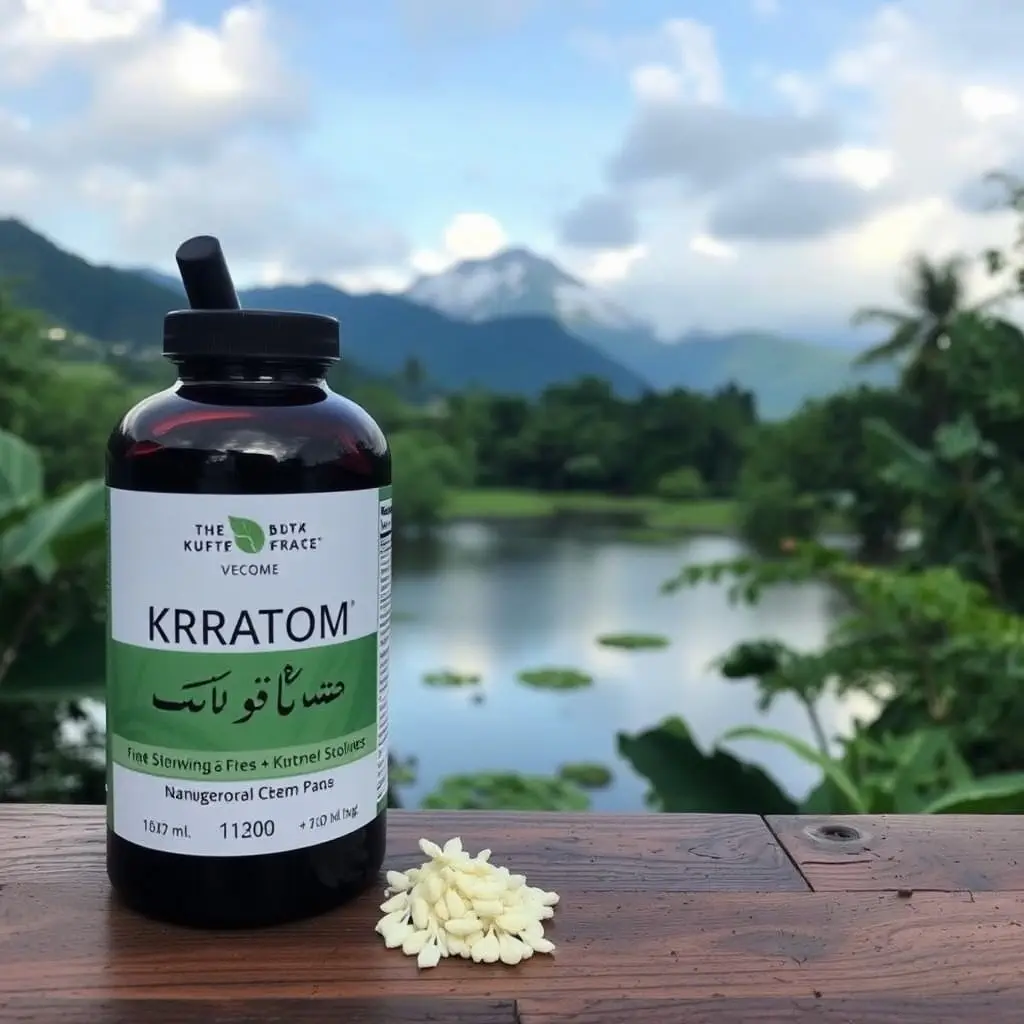Kratom, from the Mitragyna speciosa plant, has been recognized as a potential alternative for opioid addiction treatment due to its ability to alleviate withdrawal symptoms and cravings. Its compounds interact with brain opioid receptors for pain relief and mood enhancement, though its use is under ongoing research for efficacy and safety. The legal status of kratom is highly variable; it's federally legal in the U.S., but individual states may impose restrictions or bans. This inconsistency is particularly relevant for those considering traveling with kratom, as it remains illegal in many countries, and possessing it across state lines or international borders can lead to legal consequences due to regulations like can you travel with kratom. It's crucial for individuals to verify the legal status of kratom at their destination before traveling to avoid potential legal issues. A comprehensive recovery approach that includes professional medical guidance and a combination of counseling, therapy, and peer support is advised when incorporating kratom into one's recovery strategy. Understanding the complex legal landscape surrounding kratom use while traveling is essential for a smooth and uninterrupted addiction recovery journey.
Exploring the potential of kratom in addiction treatment and recovery, this article delves into the substance’s multifaceted role within holistic healing plans. Kratom, a tropical tree’s leaf, has garnered attention for its therapeutic properties, prompting scrutiny on its legal status for travel—a critical aspect for those seeking recovery across borders. We will navigate the complexities of kratom legality and its safe integration into comprehensive recovery strategies, offering valuable insights for individuals navigating this path. Understanding kratom’s impact on addiction treatment is paramount; this article aims to shed light on this emerging topic in substance abuse recovery.
- Understanding Kratom's Role in Addiction Treatment and Recovery
- The Legality of Traveling with Kratom: What You Need to Know
- Integrating Kratom into a Holistic Addiction Recovery Plan: Safety and Efficacy Considerations
Understanding Kratom's Role in Addiction Treatment and Recovery

Kratom, a plant originating from Southeast Asia, has garnered attention in the realm of addiction treatment and recovery, particularly as individuals seek alternative therapeutic options to traditional medications. Mitragyna speciosa, commonly known as kratom, contains compounds that can interact with the opioid receptors in the brain, offering pain relief and mood-enhancing effects. These properties have led some to explore its use as a tool for managing withdrawal symptoms and cravings associated with opioid addiction. Research is ongoing to understand its efficacy and safety profiles in this context, but preliminary studies suggest that kratom may play a role in alleviating the discomfort of withdrawal, which is a critical phase in recovery.
When considering the use of kratom for addiction treatment, it’s important to navigate legal considerations; while some jurisdictions recognize its potential therapeutic benefits, others have restrictions on its possession and travel across state lines or international borders. For those interested in incorporating kratom into their recovery plan, understanding these regulations is crucial. Additionally, due to the variable alkaloid content in different strains of kratom leaves, as well as individual physiological responses, medical supervision is recommended when integrating kratom into addiction treatment. This ensures that dosing is optimized for the individual’s needs and that any potential adverse effects are managed appropriately. As with any substance used in recovery, a comprehensive treatment plan that includes counseling, behavioral therapies, and support groups should be the foundation of a successful journey to sobriety.
The Legality of Traveling with Kratom: What You Need to Know

When considering the use of Kratom for addiction treatment and recovery, it’s crucial to be aware of the legal implications, particularly when traveling with this substance across different states or countries. As of now, the legal status of Kratom varies significantly by jurisdiction, which can impact your ability to travel with it. In the United States, for instance, Kratom is federally legal but subject to regulatory controls by the DEA. This means that while you can legally possess and use Kratom in some places, state laws can differ, with certain states imposing their own restrictions or bans. When planning to travel with Kratom, it’s essential to verify its legality at your destination. Some states may categorize Kratom as a controlled substance, which would make traveling with it illegal without proper authorization. Furthermore, international travelers should be particularly cautious, as Kratom is a controlled substance in several countries and can lead to legal issues upon entry or possession outside the U.S. Border protection agencies are known to confiscate Kratom at borders, and travelers found with it could face penalties or detention. Therefore, before embarking on your journey, consult the latest travel advisories and legal regulations concerning Kratom for the places you plan to visit. Staying informed about these laws is not just a matter of compliance but also ensures that your use of Kratom as part of your recovery process does not lead to unnecessary complications during your travels.
Integrating Kratom into a Holistic Addiction Recovery Plan: Safety and Efficacy Considerations

Kratom, a plant native to Southeast Asia, has garnered attention in the realm of addiction treatment and recovery due to its potential opioid-like effects. As part of a holistic approach to addiction recovery, kratom may offer benefits for individuals transitioning away from substance use disorders, particularly those involving opioids. Integrating kratom into a comprehensive recovery plan requires careful consideration of both safety and efficacy. The alkaloids present in kratom leaves, namely mitragynine and 7-hydroxymitragynine, interact with the opioid receptors in the brain, providing pain relief and mood enhancement, which can be beneficial for those in recovery. However, it is crucial to approach its inclusion under medical supervision, as kratom’s effects can vary widely among individuals and may interact with other substances.
When considering the use of kratom within a recovery plan, one must also contemplate the legal status of traveling with kratom. The legality of possessing and using kratom varies by state and country, which can pose challenges for those in recovery who might need to travel. It is imperative to research and understand the laws governing kratom use where you plan to travel, as possession may be legal in some areas and illegal in others. For instance, the U.S. Food and Drug Administration (FDA) has placed import alerts for kratom, making it subject to detainment at the border. Therefore, individuals must take precautions and seek guidance from healthcare professionals and legal experts before traveling with kratom. This due diligence ensures that recovery efforts remain consistent and uninterrupted regardless of location.
In conclusion, the potential of Kratom in the context of addiction treatment and recovery presents a promising avenue for individuals seeking alternative therapies. While its efficacy is subject to ongoing research and regulatory scrutiny—particularly as it pertains to traveling with Kratom across state or international borders—it’s clear that when used responsibly, Kratom can be an integral component of a comprehensive recovery plan. Safety and efficacy remain paramount, and it’s crucial for individuals to consult healthcare professionals before incorporating Kratom into their treatment regimen. As legislation evolves, so too does the understanding of how Kratom can aid in the journey towards recovery. With careful consideration and responsible use, Kratom holds potential as a tool in the arsenal against addiction.






